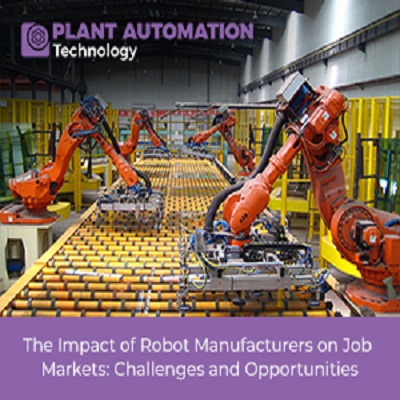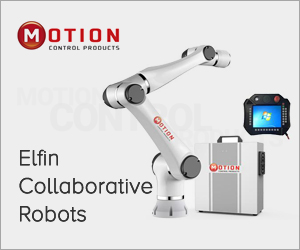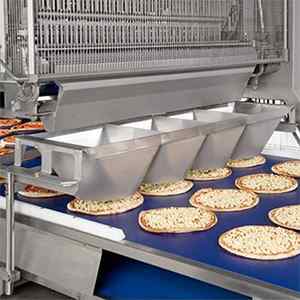The Impact of Robot Manufacturers on Job Markets: Challenges and Opportunities

Introduction
Robot manufacturers have become pivotal players in the technological revolution, reshaping industries through automation and robotics advancements. While their innovations promise enhanced productivity and efficiency, they also raise concerns about job market impact. This article examines robot manufacturers' challenges and opportunities in relation to employment. With breakthroughs in robotics, artificial intelligence, and machine learning, these manufacturers have transformed traditional manufacturing processes. However, robot integration can result in job displacement. On the other hand, it also offers prospects for reskilling, collaboration, job creation, and economic growth. Striking a balance is vital for shaping work's future in an era dominated by automation.
Challenges and opportunities presented by Robot Manufacturers
The Growth of Robot Manufacturers
Robot manufacturers have grown driven by technological advancements that have made robots more sophisticated, versatile, and cost-effective. With the increasing demand for automation across industries, robot manufacturers have expanded their operations to meet market needs. However, this growth also brings challenges and opportunities.
Automation and Job Displacement
With ongoing advancements in robotics, there is a growing concern about potential job displacement resulting from automation. Previously human-performed tasks can now be automated, leading to a potential decrease in demand for certain job roles. Industries such as manufacturing, logistics, and customer service are especially vulnerable to job displacement as robots become integrated into their operations. Addressing this challenge requires a proactive approach to ensure a seamless transition for affected workers and mitigate any adverse negative impacts.
Reskilling and Upskilling Opportunities
While automation may result in job losses, it also opens doors for reskilling and upskilling opportunities. Robot manufacturers play a vital role in addressing this challenge by providing training programs that empower workers to adapt to an increasingly automated environment. Focusing on key areas like robot programming, maintenance, quality control, and data analysis, these programs enhance workers' skills and ensure their relevance in the evolving job market. By embracing new technologies and participating in reskilling and upskilling initiatives, individuals can not only secure their jobs but also advance their careers in the face of automation.
Collaborative Robotics
As the development of collaborative robots, or cobots, gains momentum, robot manufacturers are focusing on designing robots that work alongside humans rather than replacing them entirely. These cobots are intended to assist and augment human capabilities. Collaborative robotics brings forth a significant opportunity for workers to collaborate with robots and achieve more efficient task execution. By delegating repetitive and physically demanding tasks to cobots, human workers can dedicate their efforts to more intricate and value-added activities. This collaboration between humans and robots has the potential to enhance overall productivity and foster higher levels of job satisfaction.
Job Creation and New Roles
Contrary to the notion that robot manufacturers solely lead to job losses, their growth can also result in job creation. As technology advances, new roles emerge that require human expertise in areas such as robot programming, maintenance, quality control, and data analysis. Robot manufacturers can contribute to job growth by providing opportunities in these fields. Companies may need specialists who can program and maintain robots, ensure quality standards are met, and analyze the data generated by robotic systems. This presents a chance for individuals to acquire new skills and enter emerging job markets.
Economic Implications
The impact of robot manufacturers on job markets extends beyond individual employment. The adoption of automation can lead to increased productivity and cost savings for businesses. By streamlining processes and reducing human error, robots can enhance overall efficiency. This, in turn, can contribute to economic growth by increasing output and competitiveness. The economic benefits of automation can create new business opportunities and potential job openings in industries related to robot manufacturing, such as robot maintenance and support services.
Impact on Low-Skilled Jobs
One of the key concerns surrounding the rise of robot manufacturers is the potential impact on low-skilled jobs. Automation tends to replace repetitive and mundane tasks that require minimal skills. Jobs such as assembly line work, manual labor, and routine data entry are susceptible to automation. This can create challenges for individuals with limited education or specialized skills, as they may face difficulties finding alternative employment opportunities. It becomes crucial for governments, educational institutions, and robot manufacturers to collaborate in providing training programs and support systems to help reskill and transition these workers into new roles that require higher cognitive and creative abilities.
The Role of Robot Manufacturers in Job Market Transformation
Robot manufacturers play a significant role in shaping the job market transformation. Their ability to design and produce advanced robotics systems enables businesses to automate various processes, resulting in increased efficiency and reduced costs. This transformation can lead to a restructuring of job roles within organizations, requiring employees to adapt to new ways of working. Robot manufacturers can assist businesses in this transition by providing consultation and guidance on integrating robots into existing workflows while ensuring a smooth transition for employees.
Enhanced Workplace Safety
Robot manufacturers contribute to improved workplace safety by deploying robots in hazardous or physically demanding environments. Dangerous tasks such as heavy lifting, working with hazardous materials, or exposure to extreme temperatures can be delegated to robots, reducing the risk of accidents and injuries. As a result, employees can be reassigned to less risky roles or take on responsibilities related to robot maintenance and supervision, fostering a safer work environment.
Ethical Considerations and Social Implications
The growing presence of robot manufacturers raises ethical considerations and social implications in job markets. Questions arise regarding the ethical use of automation and the potential consequences for marginalized communities and vulnerable populations. It becomes crucial for robot manufacturers to prioritize inclusivity and diversity in their technological advancements, ensuring that the benefits of automation are accessible to all and not exacerbating societal inequalities. Additionally, regulations and policies may need to be implemented to address issues such as data privacy, security, and accountability in the context of robot manufacturing and deployment.
Conclusion
The impact of robot manufacturers on job markets is a multifaceted phenomenon that presents both challenges and opportunities. While automation may lead to job displacement, it also offers possibilities for reskilling, upskilling, and the creation of new roles. Robot manufacturers have the responsibility to collaborate with governments, educational institutions, and businesses to ensure a smooth transition and provide support systems for affected workers. Striking a balance between technological advancements and the human workforce is essential for maximizing the benefits of automation while promoting a sustainable and inclusive job market for all.







